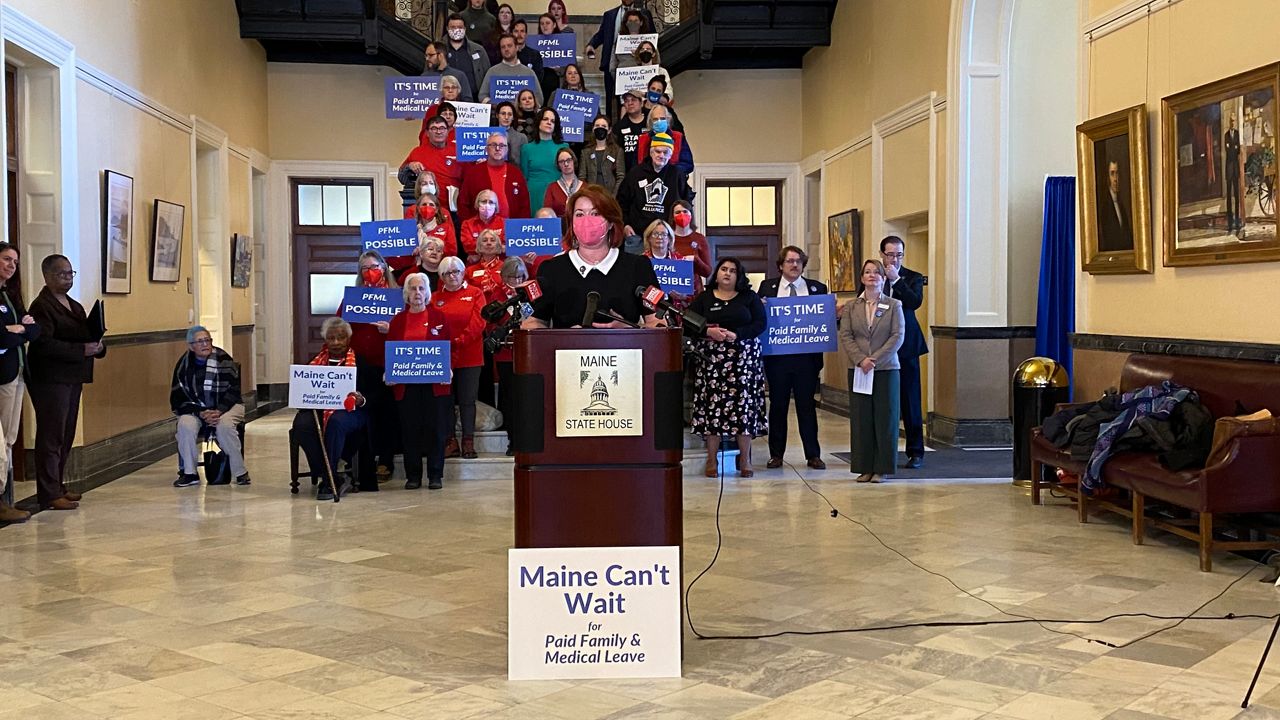Sessa Salas runs a daycare center in Camden and worries that her employees are struggling to balance their work and family responsibilities.
Oftentimes, it’s her staff who are also mothers who come to her office in tears.
“It is always the mothers,” she said. “They are almost always the ones who stay home from work to take care of a sick child.”
To ease the burden, Salas and others came to the State House Tuesday to lobby lawmakers to support the creation of a new paid family and medical leave benefit.
Maine could join 11 other states in providing a benefit that helps workers get at least a portion of their salary if they need extended time off for caregiving duties.
For the last 30 years, the federal Family and Medical Leave Act has allowed workers to take unpaid time off to care for family. Advocates in Maine are now pushing for paid time off, citing statistics that show only 20% of private sector workers currently have access to paid family leave.
There are 181,000 caregivers in the state, ranging from new parents to those helping an elderly family member, with many other circumstances in between, according to AARP Maine.
“No matter who they are or what they offer in their role as a caregiver, we know they are a vital part of Maine and an essential part of our long-term care system,” Carl Bucciantini, an AARP volunteer, said during a State House press conference.
Many of the details of the program have yet to be worked out, but lawmakers who support the initiative say they are ready to negotiate.
One Department of Labor estimate pegs startup costs at $65 million, a figure Sen. Mattie Daughtry (D-Brunswick) said is up for debate. Since the proposal isn’t funded in Gov. Janet Mills’ proposed $10.3 billion budget, lawmakers will have to find other ways to cover start-up costs.
“Like any bill in the Legislature you’ve got to get through the policy and get working on the funding,” Daughtry said.
Daughtry served as co-chairwoman of a commission that laid out a framework for the system, which would be supported by employers with 15 or more workers and employees.
Lawmakers will decide the employer/employee split, but the maximum recommended contribution would be 1% of wage rates, according to a commission recommendation.
Senate Minority Leader Trey Stewart (R-Presque Isle) said he had not yet seen enough details to take a position on the proposal. But he did say in general, workers and businesses aren’t looking to pick up extra costs.
“Any institution of a new tax on them and their wages or on businesses in Maine is probably not going to be received well by Maine people,” he said. “I don’t know of anybody that’s really excited about that prospect.”
As proposed by the commission, the system would cover full-time, part-time, temporary and seasonal workers and those in the public and private sectors. Self-employed workers could opt in to the program, the commission recommended.
Wage replacement would be 80-90% of wages.
There would be an annual 12-week maximum for a qualifying event or a 16-week combined maximum limit.
The 11 other states with programs — California, Colorado, Connecticut, Delaware, Massachusetts, Maryland, New Jersey, New York, Oregon, Rhode Island and Washington — require employees to support the system through payroll taxes, according to the National Conference of State Legislatures. Some also require employers to chip in.
Advocates say it’s an idea whose time has come in Maine.
“We have a once in a generation opportunity and the path ahead could not be more clear,” said Destie Hohman Sprague, executive director of the Maine Women’s Lobby. “Paid leave is powerful, it’s affordable, and it’s possible, and it’s time because care can’t wait.”



